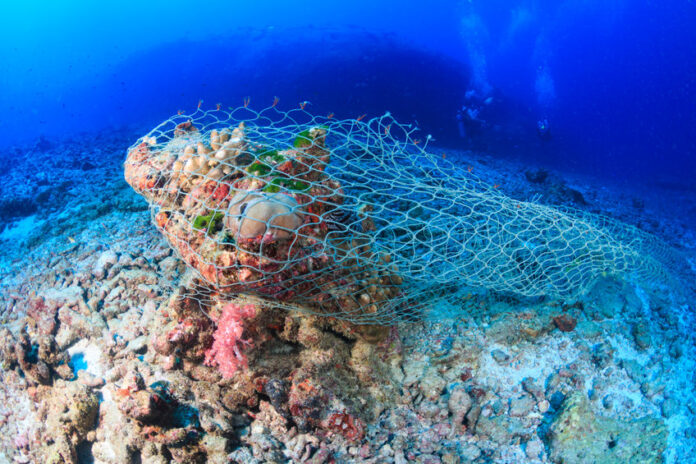Discarded fishing nets are a significant threat to marine life and the planet at large
Days ahead of its Galaxy Unpacked event, Samsung announced that its high-end Galaxy S smartphone will be made from a “new material” comprised of plastics found in discarded fishing nets.
While the company has yet to fully explain how and where the plastics will be used in the new device, it did state that it plans to “incorporate repurposed ocean-bound plastics” across its whole product lineup.
Often referred to as ghost nets, discarded fishing nets are a significant threat to marine life and the planet at large. As Samsung pointed out in a statement, the 640,000 tons of nets that abandoned every year entangle sea life, damage coral reefs and natural habitats and can even wind up in our food and water.
“Samsung is committed to addressing ocean plastic pollution in a way that will positively impact not only the environment but also the lives of all Galaxy users,” said the company. “This new technological advancement marks a notable achievement in the company’s journey to deliver tangible environmental actions and protect the planet for generations to come.”
This development is also evidence that the electronics giant is taking steps in its Galaxy for the Planet initiative, which aims to minimize the Samsung’s environmental footprint and help foster improved sustainability practices.
About the initiative, the company’s President and Head of Mobile Communications Business TM Roh commented: “We believe that everyone has a role to play in providing innovative solutions that protect the planet for generations to come. Samsung understands our efforts need to match our scale, our influence and the magnitude of the entire Galaxy ecosystem around the world.”
Other green goals for the company include reducing greenhouse gas (GHG) emissions by launching “highly energy-efficient” products, monitoring its suppliers’ GHG emissions and using advanced technologies like Quick Drive for washing machines and highly efficient fans in external units of air conditioners to improve operational energy efficiency.
“Repurposing ocean-bound plastics is just the first step in our collective mission to address the climate crisis, and Samsung looks forward to using our scale, innovation and open collaboration to uncover additional solutions,” said the company.

